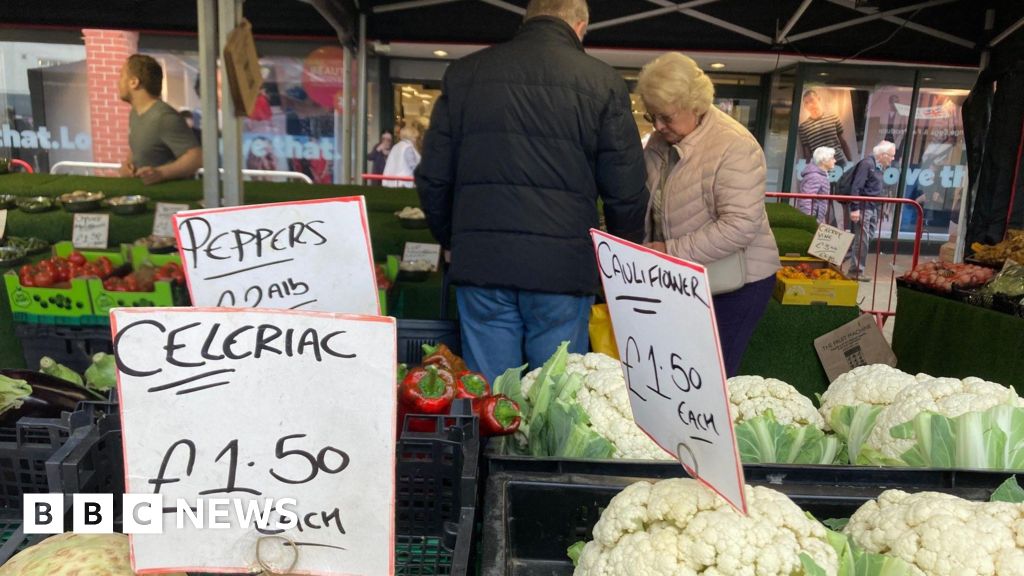Cost of living correspondent
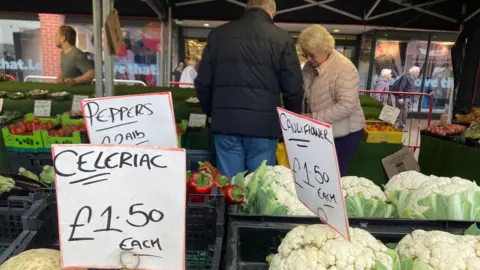 BBC
BBCShops and services may have to be forced to accept cash in the future to help protect vulnerable people who rely on it, MPs have said.
A Treasury Committee report into cash acceptance stopped short of recommending a change in the law, but said the government had to improve its monitoring of the issue.
“There may come a time in the future where it becomes necessary for HM Treasury to mandate cash acceptance if appropriate safeguards have not been implemented for those who need physical cash,” the report said.
Some countries, such as Australia or parts of the EU, are planning requirements to accept cash for essential services in some circumstances.
Poverty premium
In evidence to the inquiry, a government minister said there were no plans to make cash acceptance mandatory.
Shops and services can currently accept whichever form of payment they want.
With an increasing number going card-only, the committee said prices would rise for essential goods and services in the remaining outlets that accepted cash.
That would create a poverty premium for those who wanted to use cash to budget, as well as for vulnerable groups such as people with learning difficulties and the elderly.
“A sizeable minority depend on being able to use cash,” said Dame Meg Hillier, who chairs the influential Treasury Committee.
She said the report should be a “wake-up call” about the risks of ignoring those affected by the falling use of banknotes and coins.
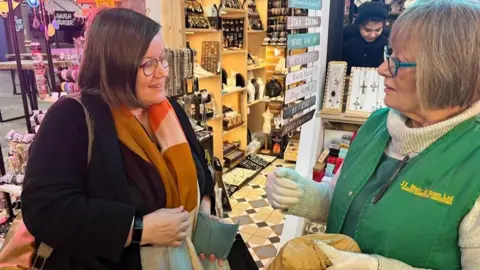
The committee called on the government to “vastly improve” monitoring and reporting of cash acceptance levels.
Otherwise it warned it risked people being excluded from leisure centres, theatres or public transport. It also heard evidence about frustrated motorists unable to pay by cash in car parks.
“The government is in the dark on how widely cash is being accepted and that is completely unsustainable,” said Dame Meg.
There was particular concern for victims of domestic and economic abuse who need cash to avoid being traced through card transactions or to gain financial independence from abusive partners.
‘Cash or card, madam?’
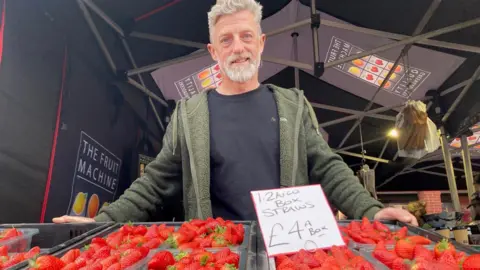
The committee’s report is one of the most significant developments in the debate over the future of notes and coins since the Access to Cash Review, published in 2019 which called for urgent action on the viability of cash.
Among this latest report’s findings is a conclusion that for some businesses, such as market stallholders, cash remains fundamental to the preservation of their trade.
There has been a market in Epsom, Surrey, for centuries – but it is only in recent years that traders have seen the majority of shoppers switch to electronic payments.
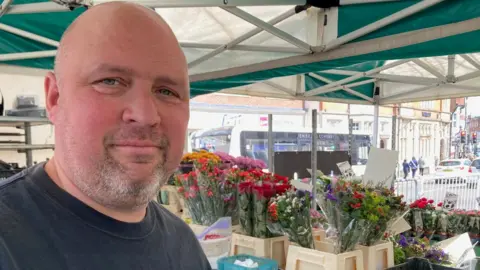
Chris Ilsley has been running his plant stall – CI Plants – on the market for 13 years.
When he started it was 100% cash, now it is 70% to 80% card payments.
Speaking surrounded by geraniums, he said he was happy to take any form of payment, although card was slightly easier albeit slower to process.
“We’ll take anything,” the 47-year-old said. “I prefer the older generation to use card and put their purse away [for safety].”
Over at The Fruit Machine greengrocer stall, Tom Cresswell also has a long line of customers, and he said most paid by card.
“The youngsters don’t ever pay by cash; they pay with their phones and their watches,” the 52-year-old said.
“The older gentlemen tend to use cash. Whatever is easier for the customer.”
The report comes as the Post Office announced a renewed deal with banks to ensure customers can access basic banking services at post office counters.
The deal, which runs until the end of 2030 allows customers of 30 banks and building societies to use their local post office to withdraw and deposit cash, make balance queries and deposit cheques.
Some campaigners have called for cash acceptance to be enforced by the law now.
Ron Delnevo, from the Payments Choice Alliance, said he was disappointed about the “procrastinating approach” of the committee.
The Treasury said the government was committed to seeing 350 banking hubs in place.
“We welcome businesses who do want to continue accepting cash and new rules introduced by the Financial Conduct Authority support this by helping them to make deposits,” a spokesman said.
